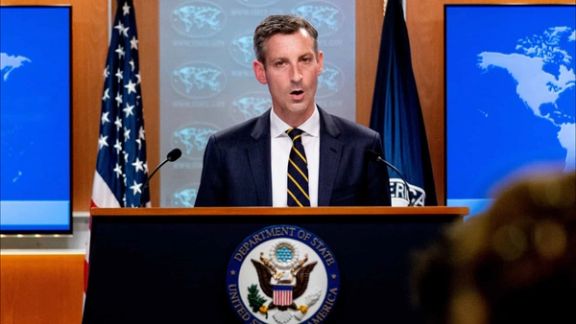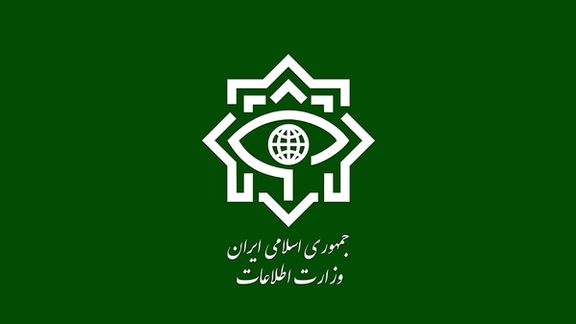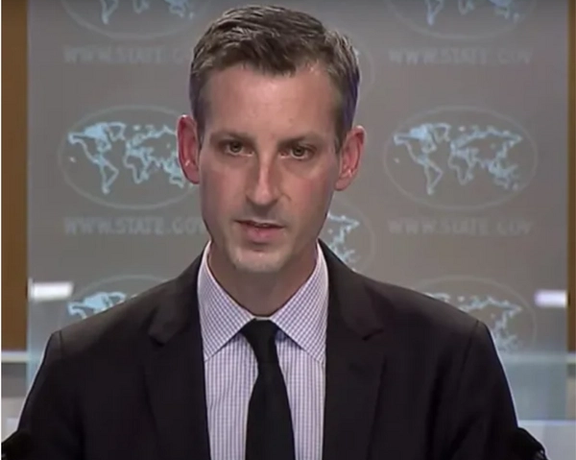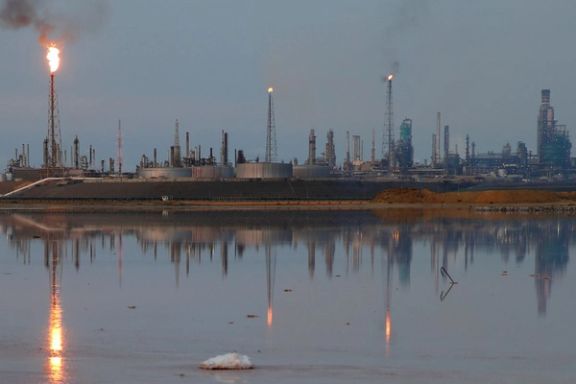US Reiterates Direct Talks With Iran Would Facilitate Diplomacy

The United States has reiterated that direct communication with Iran would in some ways facilitate diplomacy regarding the talks to revive the 2015 nuclear agreement.

The United States has reiterated that direct communication with Iran would in some ways facilitate diplomacy regarding the talks to revive the 2015 nuclear agreement.
“I am confident that our team will be in touch with Enrique Mora and his team. Of course, he is still on the ground”, he said.
Answering a question about the last communication exchanged between Tehran and Washington, he said that if Iran and the US were able to have direct discussions "we weren’t reliant on a middleman... But regardless, we’re not going to detail a play-by-play".
Saying that the department does not have any updates on the talks to offer, Price emphasized that the administration is of the opinion that a mutual return to compliance with the Joint Comprehensive Plan of Action, or the JCPOA, “would manifestly be in our national security interest because it would once again put permanent and verifiable limits on Iran’s nuclear program, a program that has been in many ways unconstrained since 2018”.
Talks to revive Iran's 2015 nuclear deal with world powers have stalled since March, chiefly over Tehran's insistence that Washington remove the FTO designation of the IRGC, which is the only example of a sovereign state’s armed forces to be included.

European Union’s coordinator in Iran nuclear talks met with Tehran’s chief negotiator on Wednesday, as Iran said it arrested two European citizens.
Enrique Mora who arrived in Tehran on Tuesday met with Ali Bagheri-Kani and photos published showed a somewhat somber-faced Mora shaking hands with the smiling Iranian diplomat, but with no news about the results of the meeting until late evening in Iran.
In a tweet before the meeting, Iran’s foreign ministry emphasized both circumventing United States’ sanctions and removing them through an agreement. But it warned that Tehran’s “red lines” must be respected in any “lasting and good agreement.”
Fars news website, affiliated with the Revolutionary Guard, in a long article Wednesday morning, listed all the “violations” and “lack of commitment” by Europeans to the 2015 nuclear agreement, JCPOA, when they failed to honor its economic benefits for Iran.
The article coincided with the announcement that Iran’s intelligence ministry has arrested to “European nationals” for visiting the country to foment unrest, especially among disgruntled teachers. Hardline news websites publishing the news provided no details.
Mora, before departing for Tehran on Tuesday, tweeted that he would be discussing both the revival of the nuclear talks and “other issues”. Iran has been threatening Sweden for the long trial of a former judicial official who was arrested in Stockholm for his alleged role in the killing of thousands of political prisoners in Iran in 1988. A verdict is expected in the case in July and Swedish prosecutors have demanded the maximum sentence of life imprisonment.
There is also the case of a former Iranian diplomat who is serving a 20-year prison term in Belgium for organizing a plot to bomb an opposition rally in France. Iran also demands his release.
On Tuesday Tehran ruled out any prisoner exchange with Europe as it says it will execute Hamidreza Djalali, a Swedish Iranian dual citizen, who was arrested in 2016 on a visit to an Iranian university and convicted on alleged “espionage for Israel.”
Therefore, Mora’s visit to Tehran could be as much about prisoners as to find a common ground to jump start the JCPOA talks stalled since mid-March.
However, Iran is facing a worsening economic crisis, as food price inflation accelerated this month and market chaos threatens political instability. To what extent Tehran is willing to risk survival with US sanctions in the absence of a nuclear agreement, is not clear.
Meanwhile, Fars published another article arguing that three foreign visits, starting with the trip of the Polish foreign minister Zbigniew Rau last Saturday, Mora’s visit on Wednesday and the upcoming visit of Qatar’s Emir Sheikh Tamim bin Hamad al-Thani, all had a common thread.
Fars argued that Europe needs natural gas in the wake of the Russian invasion of Ukraine and the main purpose of these dignitaries is to find ways for Iran to export gas to Europe. The theory however has one problem. Iran does not have enough natural gas for its own domestic consumption, and it would take years to inject capital and technology to tap into its vast reserves and achieve a significant volume of exports.

Iran’s Ministry of Intelligence has announced the arrest of two European individuals for promoting unrest and instigating chaos in the Islamic Republic.
The public relations office of the ministry said in a statement on Wednesday that the two Europeans, who had entered the country with the aim of provoking public outrage through changing the direction of normal popular demands into chaos, social disorder and destabilization of society, were identified and arrested by the intelligence forces.
The statement by the ministry did not provide any details about their nationality or how and when they were arrested, but apparently, they came from the same country.
It added that the two main elements of the mission -- organized by intelligence agencies -- were experts in the field of riot and instability and have experience in training their local agents in several countries over the years.
The statement also mentioned the Coordination Council of Iranian Teachers’ Trade Associations as one of the circles with whom the two had held meetings. The council has been the organizer of several rounds of nationwide protests since last year, prompting speculations that the announcement can be a measure to link teachers’ protests to foreign intelligence agencies to justify the heavy-handed crackdown.
The timing of the announcement also suggests that it can also be an attempt to exert pressure on European countries over the case of a former officials who is facing a court verduct in Sweden.
On Tuesday, a Belgian court also dismissed appeals by three accomplices of an Iranian diplomat who was convicted of plotting to bomb an opposition rally in France in 2018.

The head of the UN nuclear watchdog said Tuesday Iran was delaying information about old undeclared nuclear sites, leading to a possible clash in a June meeting.
Iran and the United Nations International Atomic Energy Agency (IAEA) had agreed a three-month plan on March 5 for a series of exchanges for Iran to clarify remaining questions about uranium particles found in old sites kept secret from the IAEA. Following that process, the IAEA chief Rafael Grossi was supposed "to report his conclusion by the June 2022 (IAEA) Board of Governors" meeting, which begins on June 6.
However, Western diplomats have said there is little sign that Tehran has given satisfactory answers to the watchdog.
Talks to revive Iran's 2015 nuclear deal with world powers have stalled since March, chiefly over Tehran's insistence that Washington remove the Islamic Revolutionary Guard Corps (IRGC), from the U.S. Foreign Terrorist Organization (FTO) list.
While not technically part of the nuclear deal, one issue causing tension and distrust between Tehran and the West had been Iran's demand for the closure of the International Atomic Energy Agency's investigation into uranium particles found at three apparently old but undeclared sites.
Those sites suggest that Iran had nuclear material there that it did not declare to the agency.
Speaking to the EU parliament, Grossi said he remained extremely concerned by the situation and had told Iran that he found it difficult to imagine that the nuclear deal could be finalized if the IAEA had serious doubts about things that it should have known about.
"I am not trying to pass an alarmist message that we are at a dead end, but the situation does not look very good. Iran has not been forthcoming in the type of information we need from them," Grossi told European Parliament committees via webstream.
It has been four years since Israel revealed it had stolen old nuclear archives from a warehouse near Tehran, renewing accusations that Iran was secretly developing plans to build nuclear weapons. The IAEA has been long trying to get a full explanation from Tehran after it was allowed an inspection of the sites and traces of radioactive material was found.
The EU's Iran nuclear talks coordinator Enrique Mora arrives in Tehran on Tuesday in what he has described as the last bullet to save the diplomatic process to revie the 2015 nuclear deal, which also includes Russia, China, France, Britain and Germany.
The Iranian government still says it stands on its “red lines” and demands lifting of US sanctions not directly related to the nuclear dispute. Pundits in Iran are pessimistic over Mora’s chances of making a breakthrough in his visit to Tehran.
Western officials have largely lost hope that it can be resurrected, sources familiar with the matter said, forcing them to weigh how to limit Iran's atomic program even as Russia's invasion of Ukraine has divided the big powers.
In the absence of an agreement to revive the JCPOA, Iran's economy has been gripped by chaos of rising food prices and possible political instability.
"We are, of course, still hopeful that some agreement is going to be reached within a reasonable time frame, although we have to recognise the fact that the window of opportunity could be closed any anytime," Grossi said.
Based on reporting by Reuters

Washington expressed confidence that the Vienna talks to restore the nuclear deal with Iran can conclude quickly if the Iranians are willing to proceed in good faith.
US State Department Spokesperson Ned Price said in his briefing on Monday that the deal can be revived if the Iranians “allow us to continue to build on and to move forward with the significant progress that had been made over months and months of oftentimes painstaking diplomacy and negotiations”.
He dodged questions about whether the EU coordinator of the talks, Enrique Mora, is carrying any new message from the US, and only said, “We support his efforts to bring these negotiations to a successful conclusion. I wouldn’t want to prejudge or attempt to discern what he might hear from his Iranian counterparts.”
“We will pursue a mutual return to compliance with the JCPOA as long as it’s in our national security interest to do so. Right now, it remains in our national security interest to see Iran’s nuclear program put back in a box,” he said.
However, Price added the Biden administration is ready to admit the failure of the talks, saying, “We’re already at the point where we’re preparing equally for either scenario – a mutual return to compliance with the JCPOA or an alternative – and we’re discussing both with our allies and partners”.
Pundits in Iran are pessimistic over the chances of success during Mora’s visit due on Tuesday to persuade Iran to return to the nuclear talks with a positive attitude.

Venezuela is expanding crude imports from Iran to feed its refineriesas as both countries struggle with United States sanctions, Reuters reported Monday
Documents cited by the agency suggested at least 200,000 barrels of Iranian crude arrived in mid-April at the Cardon refinery, Venezuela's second largest, which processes 310,000 barrels per day (bpd), with another 400,000 barrels discharging this week at the country's Jose port from the tanker (VLCC) Dino I.
Fars News Agency recently reported that under a new agreement reached under Iranian President Ebrahim Raisi, Iran had exported to Venezuela 2 million barrels of condensate – a light liquid produced during gas extraction – in seven months, expanding trade begun under the previous administration in Tehran. Venezuela mixes condensate with its own heavy crude to produce a suitable feed for refining.
Iran in return is offering through National Iranian Oil Company (NIOC) a way for Venezuela to dilute and export its heavy crude, Reuters reported. The Dino I is scheduled to sail later this month with Venezuela oil for NIOC’s Naftiran Intertrade Company. Meanwhile the Venezuela-owned Maximo Gorki will discharge 2 million barrels of Iranian condensate at the port, while the Iran-flagged Derya waits in Venezuelan waters with another cargo.